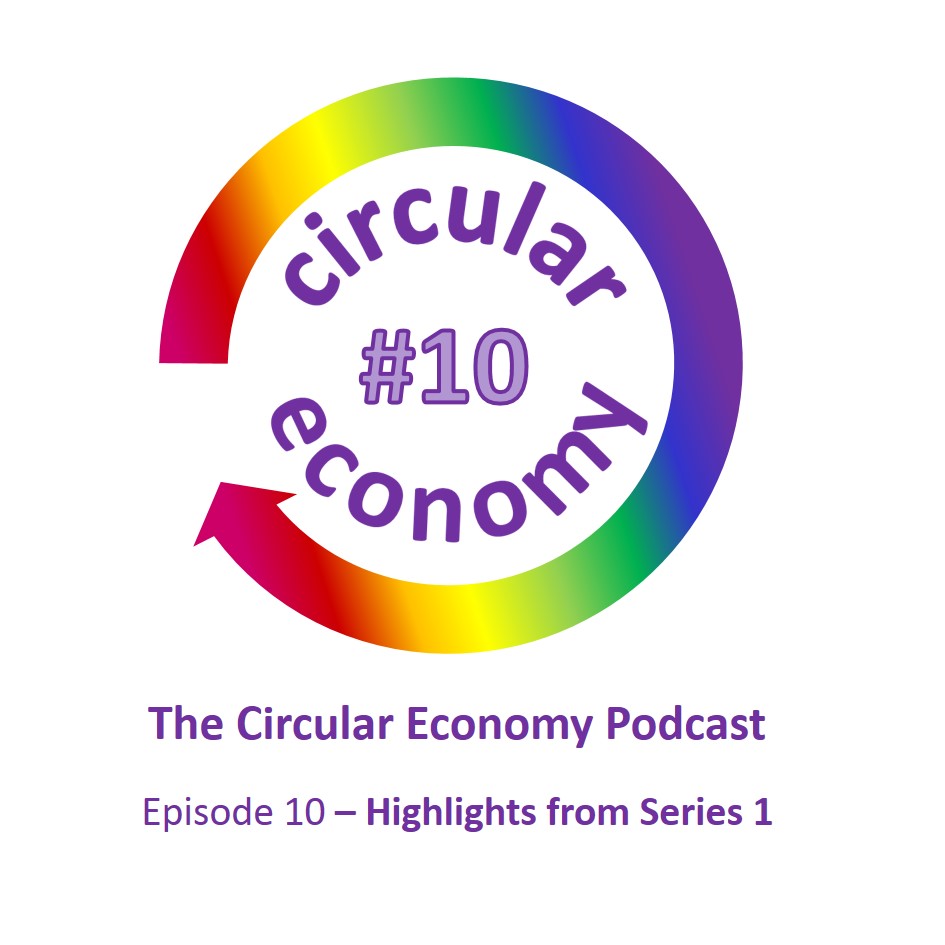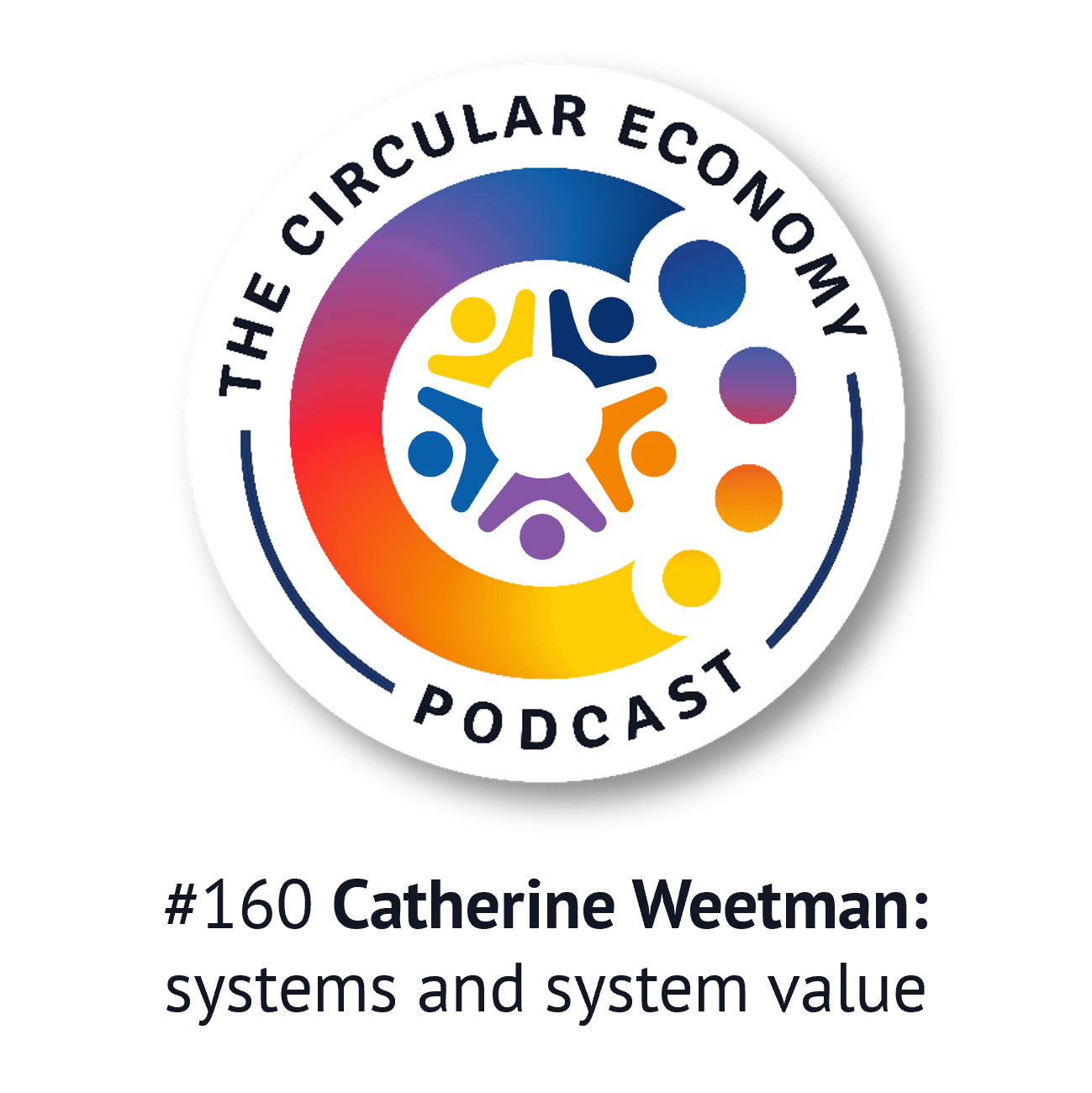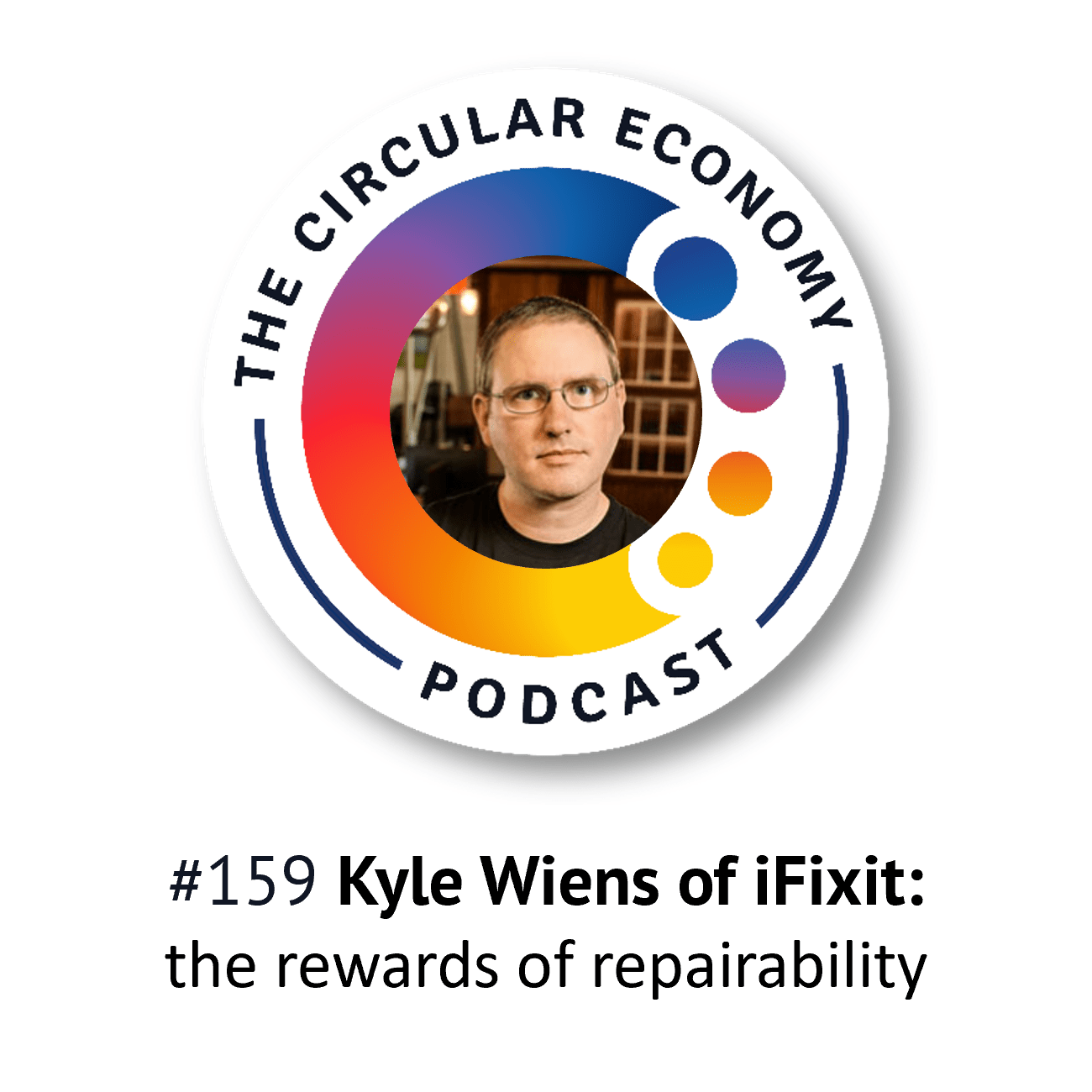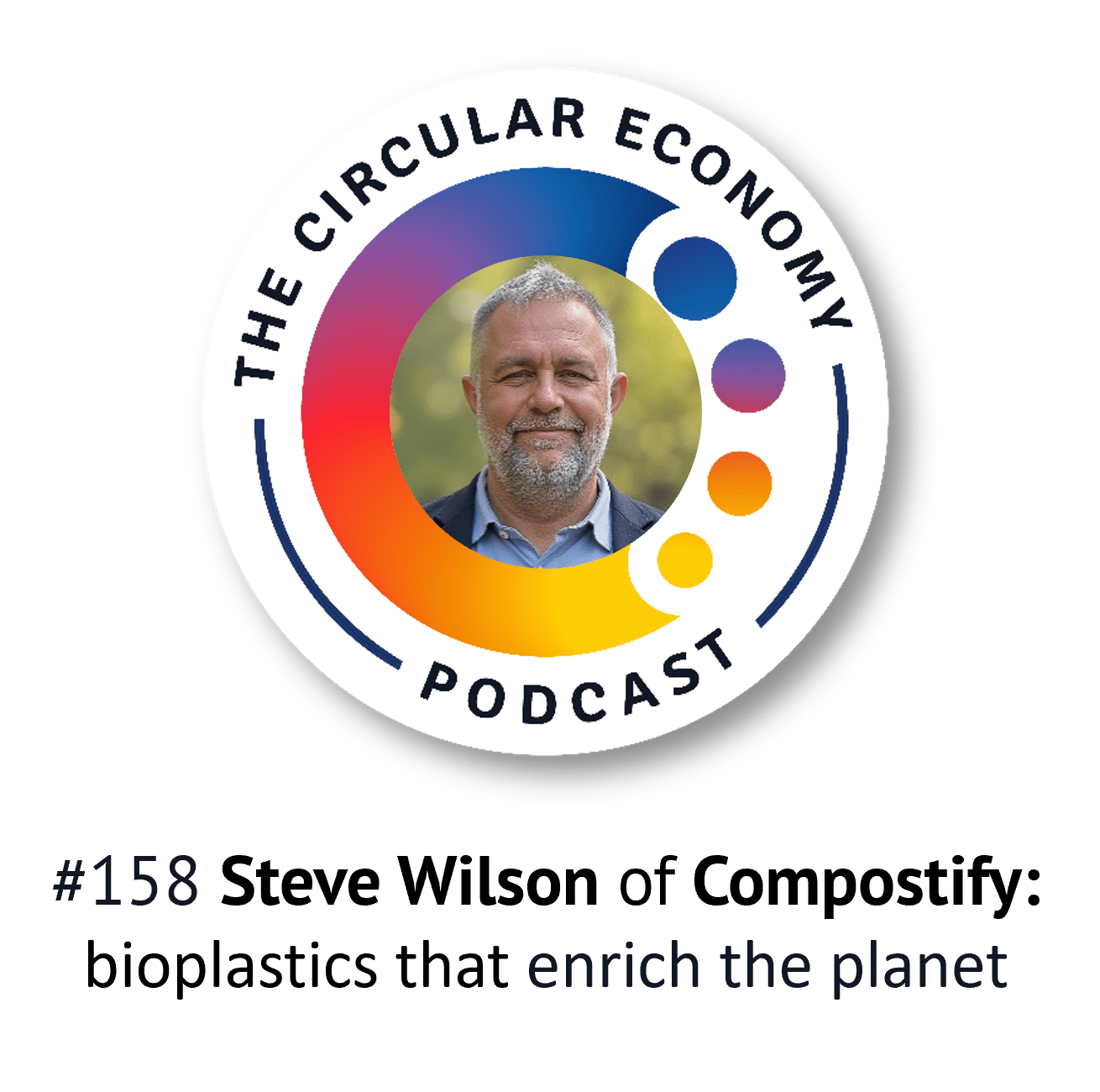Podcast: Play in new window | Download
Welcome to Episode 10, and our first circular economy podcast highlights compilation!
Perfect listening to spark your ideas for building a better business in 2020 (and I suggest you have a notebook handy).
This would be a GREAT episode to share with someone new to the podcast, or new to the circular economy.
Featuring:

- What is the circular economy?
- Linear economy issues and risk checklist
- Tom Harper – closing material loops
- Fashion entrepreneur Jo Godden – recycling ocean plastics
- Ecodesigner Katie Beverley – the circular economy’s ‘critical friend’
- Adam Fairweather – reinventing waste
- Circular economy games designer Katie Whalen
- Elaine Kerr – industrial symbiosis
- Lucy Antal – transforming our food systems
To find out more about the circular economy, listen to Episode 1, read our guide: What is the Circular Economy or buy the book: A Circular Economy Handbook for Business and Supply Chains
Why not sign up for the latest episode and insights, straight to your inbox?
I enjoyed putting this episode together, and reminding myself of the inspiring conversations with some of the amazing people who are making the circular economy happen.
Have a listen and find out for yourself…
Read on for a summary of the podcast and links to the people, organisations and other resources we mention.
Circular economy podcast highlights
[00:00] I’m recording this in the Yorkshire Dales on the 5th September 2019, and we’ve reached a mini-milestone of 10 episodes… and that means our first circular economy highlights compilation!
It’s perfect listening to spark your ideas for building a better business in 2020 (and I suggest you have a notebook handy).
This would be a GREAT episode to share with someone new to the podcast, or new to the circular economy.
I enjoyed putting this episode together and reminding myself of the inspiring conversations I’ve had with some of the amazing people who are making the circular economy happen. Have a listen and find out for yourself.
We’ve interviewed 7 people, from the fashion, food, & industrial sectors, and talked to experts in EcoDesign, industrial symbiosis and circular economy strategy.
Getting started with the circular economy
In Episode 1, we started with an introduction to the circular economy, asking why it’s important, and then we explored the circular economy components from my book: Prod Design, Sustainable inputs, Process Design, Recovery flows, and circular Biz Models
We talked about the business benefits of those circular business models, and the benefits of reuse, repair, remaking, and recycling.
In Episode 2 we dug a bit deeper into the Linear Economy, looking at the global issues and other challenges facing businesses of all sizes in every sector.
Then we looked at how you could deal with some of those challenges. I talked through how you could do a risk assessment, using the circular economy components to help you think about opportunities for your own business.
After those two ‘intro’ episodes, we’ve been talking to people involved in making the circular economy happen.
Closing Material Loops
[02:49] We started in Episode 3, with Tom Harper. Tom kept plugging away at the circular economy project he believed in, whilst facing scepticism from his bosses and colleagues. Tom works for Unusual Rigging Ltd, in the UK, making and supplying stage engineering equipment for theatre, live entertainment and big events like the Olympic ceremonies.
Tom explained how he saw opportunities to manage the company’s equipment & assets more effectively and to develop a passport system for materials. Unusual installs a wide variety of specialist equipment including flying systems and chain hoists, overhead crane and handling systems, lighting bridges trussing, and much more
Some of the installations are permanent, but many are for specific projects, like theatre shows and live music events.
Tom went on to explain how tracking all the equipment also reduced the kit that went missing because it wasn’t controlled. Some items, like the electric chain hoists, can cost over £1500 each. By reducing losses of those, plus lots of smaller items, Tom’s projects contributed to healthy bottom line savings
Unusual developed ways to test the functional performance of equipment, checking tensile strength, using MRI scanning and tracking duty cycles, so they could check whether it was safe for re-use or continued use.
At first, the staff at Unusual were a bit unsure about Tom’s plans, but they quickly got on board and have been helping come up with ideas for improvements, including developing more circular forms of transit packaging.
Unexpected benefits included engagement from key suppliers, now working towards their own circular economy solutions. The circular economy approaches also gained glowing endorsements from customers, including Cameron Macintosh, the famous producer of hit musicals like Phantom of the Opera and Cats.
Designing fashion as a force for good
[8:05] In Episode 4, we switch to the fashion sector, talking to Jo Godden, the founder of RubyMoon activewear.
Jo talked about her background in fashion, and how that led to starting a company to show how a fashion business can ‘bring products to life’. That means products have a benefit for people and our planet, instead of degrading the environment and people’s working conditions.
Jo heard about a project recovering ‘ghost nets’, the expensive fishing nets that are accidentally lost by fishermen. After finding out about developments to recycle the discarded nets into high-quality textile fibres and fabrics, she pestered the organisation to make sure she was the first UK designer to use it.
Impressively, RubyMoon is circular in other ways, too. 100% of net profits is re-invested in women entrepreneurs in developing nations, through Lend with Care, a charity. Many of these entrepreneurs are funding housing, nutrition, education and other community-focussed projects.
User-centred and Systems-thinking approaches
[11:29] Moving onto Episode 5, we talk to eco-designer Katie Beverley, from PDR, based at Cardiff Metropolitan University. I love that Katie describes herself as a ‘critical friend’ of the circular economy.
In the clip, Katie tells us how to use eco-design strategies and mentions her favourite tool, the LiDS (Lifecycle in Design) wheel – have a listen!
Katie’s advice is to translate product or service requirements into latent needs, rather than direct needs. Importantly, she stresses the benefits of collaborating with a wide range of stakeholders, as well as users. It’s critical to think about user-centred design – especially if your design needs a change in user behaviour.
We talk about remanufacturing, and the need for government policies that support long-term, systemic approaches. Katie also tells us about the design process underpinning her favourite circular economy example, the RiverSimple hydrogen-powered car.
Reinventing Waste
[15:00] In Episode 6, we talk to another designer, Adam Fairweather. Sustainability and making a positive impact is core to Adam’s work. Adam and his business partner are developing Smile Plastics as a circular economy business, designed around Permaculture principles.
Just as importantly, Smile Plastics aims to achieve positive social impacts.
Adam believes we should be able to find beauty in what we do, and that ‘material language’ can communicate important messages to everyone. For example, good design can ‘talk’ to people, by creating socially, emotionally and industrially durable products.
Circular economy fun and games
[15:45] In Episode 7, we chat with Katie Whalen, founder of In the Loop. Katie’s aiming to make the circular economy more understandable, engaging, and – importantly – make it fun. She’s developed two circular economy games:
- Firstly, In the Loop, which focuses on circular concepts and strategies
- And recently, her new game, Risk and Race. This explores circular business models and their impact on business performance.
Katie tells us a bit about how the game works and shares some of her experience working with companies involved in product recovery and reuse.
We both liked Ken Webster’s ‘two rules for the circular economy’, from the interview with Ken on Katie’s Getting in the Loop podcast.
Oiling the wheels of the circular economy
[17:02] Moving onto Episode 8, we get to talk to Elaine Kerr, who helps businesses and other organisations to turn waste and under-used materials into valuable resources.
Elaine works for International Synergies, probably the first organisation to connect businesses by ‘match-making’ to set up local resource exchanges. International Synergies works with public and private sector clients across five continents.
Transforming food systems
[17:30] And the last episode in this ‘best bits’ feature is my interview with Lucy Antal, of food campaigning charity Feedback Global. I really enjoyed chatting to Lucy, and if you want to be inspired by a fantastic range of circular ideas, I recommend you listen to this!
Here’s a clip covering just one of the many projects Lucy’s involved with: the Gleaning Network
Circular economy podcast highlights – inspiration to build a better business
[22:03] So, after listening to the recap of the first episodes, maybe you’re wondering if you are missing out on circular business opportunities. Maybe your competitors are going circular?
You could be using the circular economy to help your business be more profitable, resilient and sustainable. If you’re not in business, you could still be using your own ideas to start something exciting – being part of the solution, not part of the problem.
Every week, I’m seeing fantastic examples of start-ups, small businesses and social enterprises getting on board: using circular approaches to build a better world.
If you want to find out more, have a look at our website, www.rethinkglobal.info, or get in touch to ask us about talks, workshops and coaching.
- You can email us: Hello@rethinkglobal.info
- or Tweet us at Rethink_Global.
You can find the show notes and links to the businesses we feature in each episode on our website. You can also find the sign-up links to stay in touch with our fortnightly newsletter.
Want to find out more about the circular economy?
If you’d like to learn more about the circular economy and how it could help your business, why not listen to Episode 1, or read our guide: What is the Circular Economy?
To go deeper, you could buy Catherine’s book, A Circular Economy Handbook for Business and Supply Chains This comprehensive guide uses a bottom-up, practical approach. It includes lots of real examples from around the world, to help you really ‘get’ the circular economy. You’ll be inspired with ideas to make your own business more competitive, resilient and sustainable.
Please let us know what you think of the podcast – and we’d love it if you could leave us a review on iTunes, or wherever you find your podcasts. Or send us a Tweet: @Rethink _Global.
Podcast music
Thanks to Belinda O’Hooley and Heidi Tidow, otherwise known as the brilliant, inventive and generous folk duo, O’Hooley & Tidow for allowing me to use the instrumentals from the live version of Summat’s Brewin’ as music for the podcast. You can find the whole track (inspired by the Copper Family song “Oh Good Ale”) on their album, also called Summat’s Brewin’. Or, follow them on Twitter.


